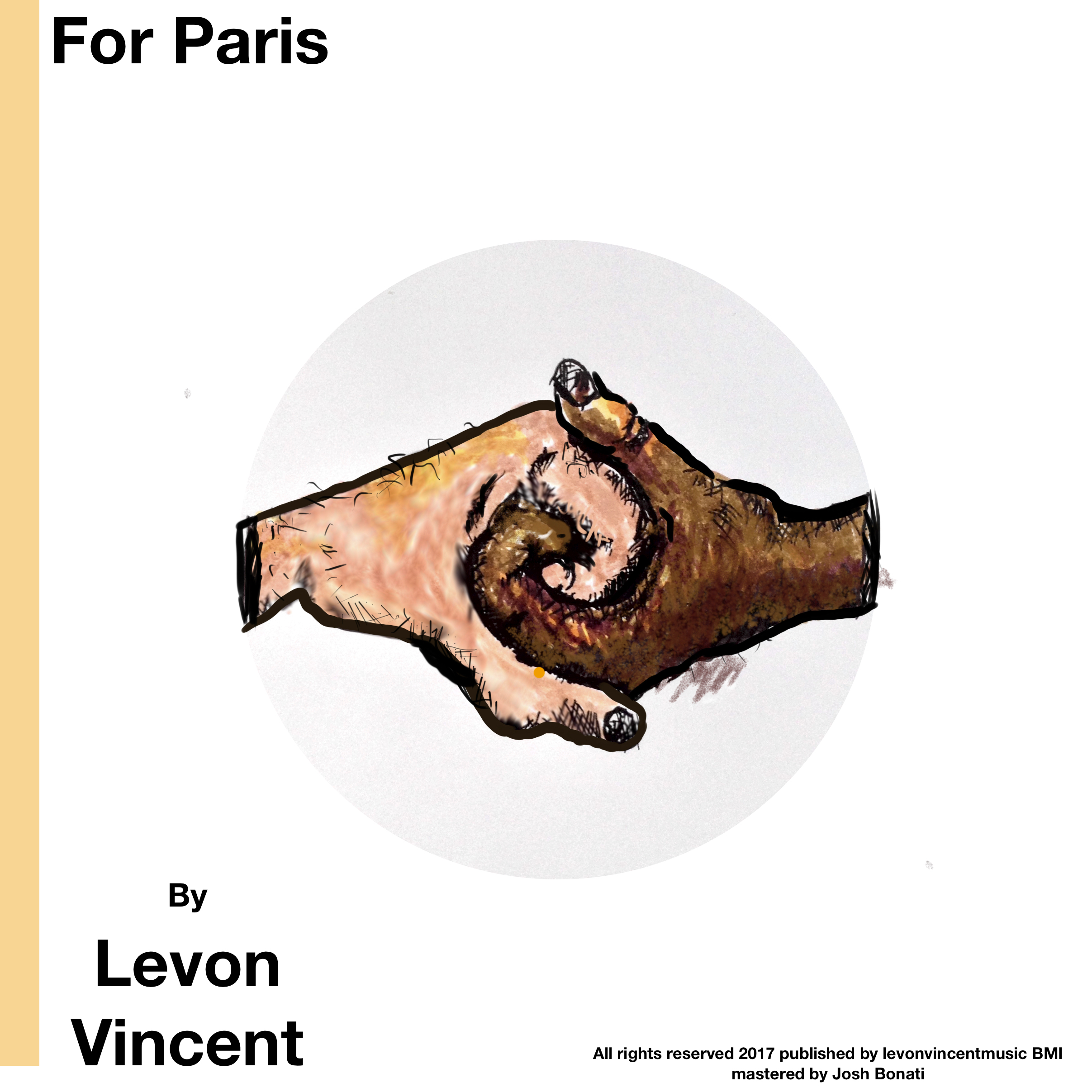Levon Vincent ‘For Paris’
So, does 'For Paris' create peace?

In dance music, Levon Vincent has a voice. A distinct voice through his music and his presence on social media. Since he announced his second LP For Paris with a long post in his usual, seemingly unedited style, there has been tangled debate on his Facebook page, from praise and support, to rejection and attack. Did he apologize adequately? Is this a PR stunt? Is it more about him than the victims of the attacks? Is he profiting from a massacre? and so on…
I remember when the controversy over his comments about the Paris attacks in 2015 was going on. His voice was more present on social media then, and what I appreciated was that it sounded like a human being—a soup of smart stuff, dumb stuff, contradictions, etc. It felt like the root of his comments was well-meaning; he just didn’t think or edit himself enough to consider their real implications. That he took the backlash seriously and has produced a work based on all that material is admirable and significant. I wish more producers in the dance idiom worked consciously like this—autobiographically, if you will—and engaged with social issues.
Because if the message on the dancefloor goes beyond the more common themes of sex, ego, escape, etc.—all of which are important and relevant (like Levon’s “Double Jointed Sex Freak”)—and also into social and political issues, then we’re talking about a dancefloor that’s intellectually more diverse and progressive. And perhaps more ethical than an exhibit of solely base messages, however effective they might be at getting people off. This makes me think of the nature of roots music. Social subjects, fundamental issues, poetic content. I think many mature people would agree that a dancefloor that’s predominantly about getting mashed and having sex has its place, but quite a small one, considering its social and individual potential.
But is For Paris for the dancefloor? I picture a meditative time at home with it in a special introspective mood. “Late Reflections” has the kicks and arrangement and length associated with the dancefloor. But it didn’t make me move. It’s got a sharp and bold melody that made me think of Steve Reich’s “New York Counterpoint,” but without the melodic and harmonic complexity.
The most ambitious piece is “Hope for New Global Piece – In 3 Parts.” There’s something innocent, even infantile about the quality of the sounds and the melodies. The transition from the first to the second part is sloppy. Really the composition and the three-part split feel like sketches. If this is what Levon’s hope for new global peace sounds like, it sounds undeveloped, unedited like his written statements. I imagine cartoon bunnies hopping around a prairie, not broken societies healed and men and women living on Earth in peace.
Many of the tracks do sound like musical expressions of their titles. I would be interested to hear in what order Levon’s composition went. And perhaps that’s one of the issues here, one of the reasons why it doesn’t quite work for me: here is a dancefloor producer and DJ with an audience used to bangers and deep tunes for the club. But here Levon isn’t channeling the energy of the rave, but inviting us to consider ideas such as what the world would be like “If We Choose War” or “If We Choose Peace.” Is a house LP an adequate artform for this task?
Nothing alive is static. And so it’s common for a person to find an artist, fall in love with them, and then fall out of love with them when their work changes, or doesn’t change. Or when they themselves have changed. I give a lot of respect to Levon for having the confidence to push forward. My favorite records of his from around 2008–2010 are alive and will be as long as people play them. Like any career, as long as he keeps producing, lasting work will come.
For Paris has an avant-gardist taste, and the homemade artwork and written statements ring sincere. It’s easy to bitch and jump on Levon’s unedited words. The guy is an artist, not a politician. He’s a public figure, he does have social responsibilities, but the attention should mostly be on his musical and artistic statements. So, does For Paris create peace?
For Paris is available for free download here.

